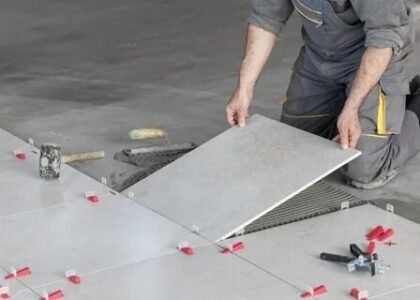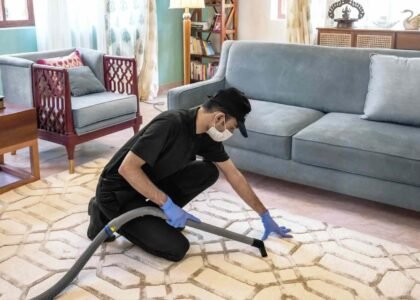Your home’s waste system plays an essential role in your daily life. It helps move waste from your home to a treatment facility or your septic system. To keep it running smoothly, you need to take steps to ensure it’s maintained properly. A well-maintained waste system will prevent blockages, backups, and expensive repairs. In this article, we’ll cover simple tips and best practices to keep your waste system functioning efficiently.
Regular Maintenance is Key
Just like any other part of your home, your waste system needs regular care. Plumbing pipes, drains, and septic systems can develop issues over time if they aren’t looked after. Regular maintenance ensures that these problems don’t become major headaches.
The first step in maintaining your waste system is to inspect your plumbing regularly. Check for leaks, slow drains, and unusual odors. If you notice any of these signs, it’s best to address the issue before it gets worse. Small repairs now can save you from larger, more expensive problems down the road.
Keep Your Drains Clean
Clogged drains are a common issue for many homeowners. Food waste, soap scum, and hair can build up over time and cause blockages. To keep your drains clear, avoid putting grease, coffee grounds, or large food particles down the sink. Instead, dispose of these items in the trash.
You should also use drain strainers in your sinks and showers to catch hair and small debris. These simple tools can prevent many blockages and reduce the need for professional cleaning.
Another way to maintain clean drains is to use a mixture of baking soda and vinegar to clear out minor buildups. Pour the mixture down your drains and let it sit for 15 to 20 minutes. Then, rinse with hot water to help break down any residue inside the pipes. Doing this every few months will keep your pipes in good condition.
Watch What You Flush
One of the biggest mistakes homeowners make is flushing items that should not be flushed. Wipes, feminine products, paper towels, and even food can clog your pipes and septic system. Only toilet paper and waste should go down the toilet.
Flushing the wrong items can cause blockages, backups, and even damage to your septic system. It’s essential to educate everyone in your household on proper flushing habits. This simple step can prevent significant issues and costly repairs.
Know When to Call a Professional
While small issues can often be handled by homeowners, larger problems should be left to professionals. If you notice a persistent clog, slow drainage, or foul odors coming from your drains, it’s time to call a plumber. An expert can diagnose the issue and take the appropriate steps to fix it.
In addition to plumbing problems, you might need to contact septic services to address issues with your septic system. If you live in a home with a septic tank, regular septic tank pumping is necessary to prevent overflows and backups. Having your septic tank pumped every 3-5 years will keep your system running smoothly and extend its lifespan.
Protect Your Pipes in Winter
Winter weather can put extra strain on your waste system. Frozen pipes are a common issue, especially in regions that experience cold temperatures. To prevent this, make sure your pipes are properly insulated. Pay special attention to pipes in unheated areas like attics, basements, and crawlspaces.
You can also keep faucets dripping during freezing temperatures to reduce the chances of pipes freezing. Running water keeps the flow moving and prevents pressure from building up in the pipes. This simple step can save you from costly repairs and water damage.
Avoid Chemical Drain Cleaners
Many homeowners reach for chemical drain cleaners when they face a clog. However, these products can be harmful to your pipes and the environment. The chemicals in these cleaners can erode your pipes over time and cause leaks.
Instead of using chemical drain cleaners, try using a plunger or a drain snake to clear clogs. These tools are safe and effective. If you have a persistent clog, it’s better to call a professional plumber who can address the issue without damaging your pipes.
Maintain Your Septic System
If your home uses a septic system, maintenance is essential to keep everything running smoothly. Over time, solid waste can accumulate in the septic tank, which can cause backups and system failure. Regular septic tank pumping is crucial to prevent these issues. Having your septic tank pumped every 3-5 years helps avoid costly repairs and ensures your system remains functional.
In addition to septic tank pumping, you should also be mindful of what goes down the drain. Avoid putting chemicals, oils, or grease into your septic system, as they can disrupt the natural bacteria that help break down waste.
Test Your Sump Pump
A sump pump helps prevent flooding in basements and crawl spaces by pumping out excess water. It’s essential to test the sump pump regularly to make sure it’s working correctly. To test it, pour a bucket of water into the sump pit and watch to see if the pump activates. If it doesn’t, it could be time for a replacement or repair.
In the case of heavy rainfall or a flood warning, it’s a good idea to check your sump pump to ensure it’s prepared to handle the excess water. Keeping this equipment in top condition will help protect your home from water damage.
Conclusion
Maintaining your home’s waste system is crucial for preventing costly repairs and ensuring that everything runs smoothly. Regular inspections, cleaning, and maintenance can go a long way in keeping your plumbing and septic system functioning well. By watching what you flush, avoiding chemical cleaners, and staying on top of septic tank pumping, you can avoid major problems and extend the life of your waste system.
Remember, when in doubt, don’t hesitate to call a professional. Taking care of your waste system now will help you avoid bigger issues in the future.






